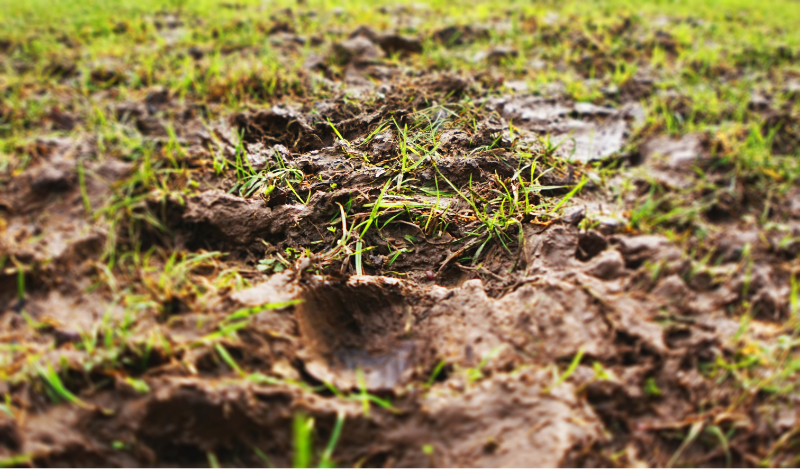An efficient irrigation system is key to maintaining a lush, vibrant landscape. However, a leak in your underground setup can disrupt water usage and harm your plants. If you’re wondering, “How do I find a leak in my underground sprinkler system?” you’re in the right place. Let’s explore the eight telltale signs that your irrigation system may be in need of attention.
Signs of a Leak:
- Pooling Water: Standing water in your lawn or garden is a clear indicator of a leak in your landscape irrigation system.
- Wet Spots on Surfaces: Noticed wet patches on concrete or pavement? Your irrigation system might be silently leaking beneath.
- Wilting or Yellowing Plants: Unhealthy plants may signal a lack of water reaching their roots due to a system leak.
- Damaged Pipes: Cracks or damage in your irrigation system pipes can lead to water leakage.
- Damaged Sprinkler Heads: Broken or cracked sprinkler heads can cause water to escape, impacting the efficiency of your system.
- Unexplained Increase in Water Bill: A significant spike in your water bill could be a red flag for an irrigation system leak.
- Foundation Cracks: Excessive moisture around your home’s foundation, possibly from a leak, can lead to cracks.
- Soggy Flower Beds: Like foundation cracks, soggy areas in gardens may indicate a leak in the underground pipes.
Locating the Source of the Leak:
Checking Sprinkler System Heads:
- Turn off the main valve to avoid accidental spraying.
- Inspect each sprinkler head for water flow.
- Use a string tracer to pinpoint the leak’s location.
Inspecting Supply Lines:
- Shut off the water supply.
- Inspect each section of pipe, marking any leaks.
- If moist, dig to the suspect pipe and call a professional for repairs.
Inspecting Valves:
- Identify leaking zones.
- Examine the solenoid for damage.
- Replace damaged solenoids and valves if needed.
Tracing Irrigation Lines:
- Turn off the water supply.
- Excavate around the entry point and follow the lines.
- Turn off the valve when the leak is found for repairs.
Examining Groundwater Levels:
- Measure groundwater levels at various locations.
- Consistent levels suggest no leak; significant differences indicate a problem.
Leak Detection Tools:
- Moisture Meter: Detects moisture in the soil.
- Acoustic Listening Device: Listens for the sound of moving water underground.
- Hydrogen Sensors: Detects hydrogen gas released by underground leaks.
Quickly Find and Fix Your Landscape Irrigation Leak:
If any of these signs sound familiar, don’t hesitate to seek professional help. Contact us for expert landscape irrigation repair and leak detection. Don’t wait for irreversible damage—schedule a consultation today to keep your landscape thriving throughout the year! Whether you use sprinkler heads, drip irrigation, or smart controllers, we’ve got your back.
